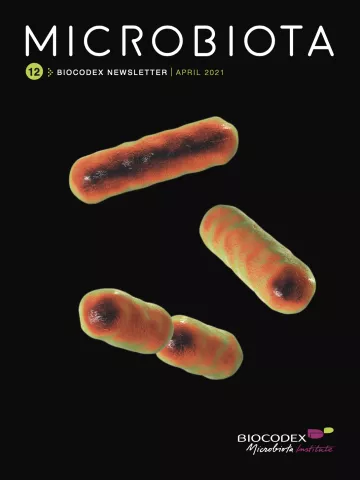
Microbiota 12 - April 2021
Dear readers,
for more than a year now, our news has constantly revolved around a two-syllable word to which a number has been added: Covid-19. There is not a day that goes by without a press article, a news flash, a radio or television programme devoted to this global pandemic. The Google search engine is a good indicator: 5.6 billion queries for “Covid-19”, 43 million for “Covid-19 symptoms”, 10 million for “microbiota and Covid-19”. Medical news is not to be outdone. Try typing “Covid-19 microbiota” into the PubMed search engine and nearly 300 publications come up!
This scientific emulation is good news: research is progressing. Quickly. It is enabling a better understanding of the pandemic: mode of transmission, symptoms, prevention, treatments... So much advances in barely a year! But many questions remain, notably about the link between Covid-19 and the microbiota. Does this virus affect humans via a perturbation of their microbiota? Or are the changes in the microbiota the consequence of the infection by the virus? Some publications show that intestinal dysbiosis persists for a long time after the symptoms have disappeared, but until when? What about the role of the microbiota in cases of long Covid? Professor Tao Zuo’s article gives some clues.
Other questions remain, notably on the involvement of the intestinal microbiota in the immune response to the virus infection and on the severity of the symptoms. This is an opportunity to go back to the basics of the dialogue between the microbiota and intestinal immunity, which begins in foetal life. There is no doubt that in the coming months, new publications will shed more light on this ‘young’ pandemic and its interactions with the intestinal microbiota. And who knows, potential means of prevention may emerge. New knowledge to be discovered in the next issues of Microbiota!
Enjoy your reading.
BMI 21.03


